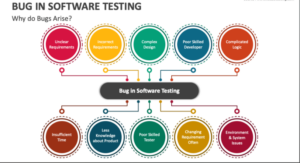In this blog, we’ll dive into the importance of QA in e-commerce, explore real-world examples, and outline how a Software Quality Assurance course can equip you with the skills necessary to thrive in this field. E-commerce implies online marketing; it involves purchasing products or services online using your smartphone or laptop and through a trusted e-commerce platform. The purchased product is then delivered to you within a stipulated period. But what happens when the software fails to meet these expectations? Poor user experience, loss of revenue, and potential damage to the brand’s reputation are just some of the consequences. This is where Software Quality Assurance (QA) steps in. QA ensures that every component of an e-commerce platform is tested, validated, and refined before it reaches the user, minimizing errors and enhancing customer satisfaction.
This modern style of transaction has paved the way for the development of numerous e-commerce websites out there. These e-commerce websites are also growing daily with some users worldwide because they provide a wide array of products and services. A fresh report from the United-Nations Conference on Trade and Development (UNCTAD) shows that the e-commerce industry worldwide has recorded enormous growth in recent years and is predicted to be worth 22.1 trillion dollars soon. Otherwise stated, e-commerce is the current trend.
The Importance of QA in E-Commerce
Ensuring Seamless User Experience
For e-commerce platforms, a smooth user experience is critical. Any glitch in the interface or failure in functionality can deter customers from making purchases and might lead them to competitors. Common issues like slow page loads, errors in checkout, or faulty search results can severely impact conversion rates.
Example: A 2018 study by Google revealed that a one-second delay in mobile load times can impact mobile conversions by up to 20%. E-commerce giants like Amazon have spent years refining their software architecture to ensure such issues do not occur.
Quality Assurance tests software rigorously to ensure that it meets performance standards across all devices and browsers. By catching bugs before they reach the consumer, QA helps e-commerce businesses maintain a smooth and enjoyable customer experience.
Protecting Customer Data and Payment Security
With the rise in online shopping comes the risk of cyber-attacks. E-commerce platforms deal with sensitive customer data, including personal details and payment information. A breach in security can have disastrous consequences, leading to financial losses and damage to brand trust.
By implementing strict QA protocols, businesses can ensure their software adheres to the latest security standards and complies with regulations like PCI-DSS (Payment Card Industry Data Security Standard) and GDPR (General Data Protection Regulation). QA engineers conduct penetration testing, vulnerability assessments, and security audits to mitigate risks.
Example: In 2019, British Airways was fined $230 million for a data breach that exposed personal and financial information of over 500,000 customers. If proper QA measures had been in place, such incidents could have been prevented.
Real-World Case Studies of QA in E-Commerce
Case Study 1: Amazon – Flawless Peak Season Performance
Amazon handles millions of transactions daily, and during peak seasons like Black Friday and Cyber Monday, this number skyrockets. To manage such high traffic, Amazon heavily relies on robust QA practices. Their QA engineers perform load testing, stress testing, and regression testing to ensure that servers can handle the surge in traffic without crashing.
Amazon’s QA automation is another example of how continuous testing throughout the development lifecycle ensures that even the smallest changes in code don’t disrupt the functionality. This dedication to quality has allowed Amazon to dominate the e-commerce landscape.
Case Study 2: Shopify – Bug-Free Code Deployment
Shopify is a popular platform that allows businesses to create online stores. With hundreds of thousands of merchants relying on the platform, it’s critical that updates or new features do not introduce bugs. Shopify uses QA automation tools like Selenium to run automated test cases every time new code is deployed. This ensures that the platform remains stable even with frequent updates, providing a flawless experience for both merchants and shoppers.
Key Components of Software Quality Assurance in E-Commerc
Functional Testing
Functional testing verifies that each feature of the e-commerce platform works as intended. From product search to payment gateways, QA testers check for proper functionality by simulating real-world scenarios. This includes checking for:
- Correct display of products
- Proper filtering and sorting
- Accurate inventory updates
- Flawless checkout and payment processes
Functional testing is the backbone of QA, ensuring that every component of the software functions smoothly.
Performance Testing
Performance testing ensures that the platform performs well under various conditions, such as high traffic or limited resources. For e-commerce businesses, performance is a key metric because it directly impacts user satisfaction. Techniques such as load testing and stress testing simulate peak user loads to identify potential bottlenecks.
Security Testing
Given the sensitive nature of the data handled by e-commerce platforms, security testing is a crucial part of the QA process. This includes penetration testing, where QA testers simulate hacking attempts to identify vulnerabilities. Other aspects include:
- Data encryption checks
- Authentication and authorization processes
- Ensuring compliance with data protection regulations
Usability Testing
Usability testing assesses how easy and intuitive the platform is for users. A seamless user experience can make or break an e-commerce site. QA testers conduct usability tests to identify areas where users might face difficulties, ensuring that the interface is user-friendly and accessible.
Regression Testing
When new features are added, they can sometimes cause unintended consequences on existing functionalities. Regression testing ensures that updates or bug fixes do not break existing features. This is especially critical in the fast-evolving e-commerce landscape where platforms are continuously updated.
Practical Skills You’ll Learn in Software Quality Assurance Training
Enrolling in a Software Quality Assurance course provides you with the skills necessary to enter the world of e-commerce QA. Let’s explore some of the practical skills you will acquire through QA testing online training:
Manual and Automated Testing
A solid QA training program covers both manual and automated testing. Manual testing helps QA engineers understand the user’s perspective and catch bugs that automated tools may miss. However, with the complexity of modern e-commerce systems, automation is essential to keep up with frequent updates. You will learn to use tools like Selenium, Jenkins, and QTP to automate test cases and streamline the QA process.
Writing Test Cases
As a QA engineer, you will be responsible for creating and executing test cases. These are sets of instructions that describe the steps and conditions for testing a specific functionality. The course will teach you how to write comprehensive test cases that cover every aspect of the e-commerce platform.
Conducting Performance Testing
You will learn to use performance testing tools like LoadRunner and Apache JMeter to simulate different load conditions and identify performance bottlenecks. This is crucial for e-commerce businesses that experience high traffic during peak seasons.
Security Testing Techniques
Understanding security testing techniques is vital in today’s cyber threat landscape. The course will guide you through various security testing methodologies, such as penetration testing, SQL injection testing, and cross-site scripting (XSS) checks, ensuring that the e-commerce platform remains secure.
Mobile Testing
With mobile commerce accounting for a significant portion of e-commerce sales, understanding how to test on different mobile devices is crucial. You’ll gain hands-on experience using tools like Appium to test the functionality and usability of mobile apps.
Step by Step Guide: Conducting a QA Test for an E-Commerce Website
Requirement Analysis: Understand the client’s requirements for the e-commerce platform. This includes the product catalog, checkout process, payment gateway integration, and security protocols.
Test Planning: Create a comprehensive test plan that outlines the scope, objectives, resources, and schedule for the QA process.
Test Case Development: Develop test cases that cover all functionalities of the platform. This includes functional testing, performance testing, security testing, and usability testing.
Test Environment Setup: Set up the test environment, including configuring the required servers, databases, and network conditions.
Test Execution: Execute the test cases manually or using automation tools. Record the results of each test and identify any issues.
Bug Reporting: Report any bugs or issues found during the testing process. Use bug-tracking tools like JIRA to document the bugs and assign them to developers for fixing.
Regression Testing: Once the bugs are fixed, perform regression testing to ensure that the fixes have not introduced new issues.
Test Closure: After all test cases are executed and bugs are resolved, close the testing process and prepare a final report detailing the outcomes.
Industry Demand for QA Professionals in E-Commerce
As e-commerce continues to expand, the demand for skilled QA professionals is higher than ever. According to a report by the U.S. Bureau of Labor Statistics, the demand for software quality assurance engineers is expected to grow by 22% by 2029, much faster than the average for all occupations.
Major e-commerce companies like Amazon, Walmart, and eBay are constantly on the lookout for QA engineers to ensure the reliability of their platforms. This makes it an ideal time to pursue a Software testing and quality assurance course.
Benefits of Enrolling in H2K Infosys’ QA Testing Online Training
If you are looking to start or advance your career in software quality assurance, enrolling in H2K Infosys’ QA training program offers several benefits:
Hands-on Training: The course provides practical, hands-on experience with real-world projects, ensuring that you’re job-ready by the end of the program.
Expert Instructors: Learn from industry experts who bring years of experience in software testing and quality assurance, giving you access to their valuable insights and tips.
Flexible Learning: H2K Infosys offers flexible online learning options that allow you to learn at your own pace, making it ideal for both working professionals and students.
Job Placement Assistance: The program includes job placement assistance, connecting you with potential employers in the e-commerce industry and beyond.
Certification: Upon completing the course, you will receive a certification that is recognized by top employers in the tech industry, giving you a competitive edge.
Conclusion:
In the ever-evolving world of e-commerce, Software Quality Assurance plays a critical role in ensuring customer satisfaction, data security, and smooth performance. From functional testing to performance and security testing, QA professionals ensure that every aspect of the platform works flawlessly.
As e-commerce continues to grow, so does the demand for skilled QA engineers. By enrolling in a Software quality assurance course at H2K Infosys, you can gain the practical skills and knowledge needed to succeed in this dynamic industry.
Key Takeaways:
- Software Quality Assurance is essential for ensuring a smooth user experience, data security, and platform performance in e-commerce.
- Real-world examples from Amazon and Shopify highlight the importance of QA in handling peak loads and ensuring bug-free updates.
- QA professionals are in high demand, especially in the e-commerce sector, with job growth projected to increase significantly in the coming years.
- H2K Infosys’ QA Testing Online Training provides hands-on learning, expert guidance, and job placement assistance, making it the perfect choice for aspiring QA professionals.
- Whether you’re starting out or looking to advance your career, a QA testing classes can help you gain the skills and certification needed to excel in this field.
Call to Action:
Ready to take your career to the next level? Enroll in H2K Infosys’ Software Quality Assurance training today and become a certified QA professional. Gain practical skills, work on real-world projects, and secure your dream job in the thriving e-commerce industry!































2 Responses